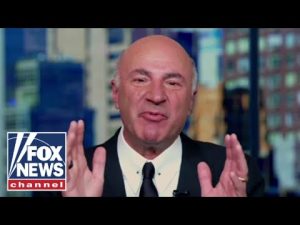Former President Jimmy Carter’s journey from a humble upbringing to the White House is a tale filled with unexpected twists and turns, reminding everyone that sometimes the most unlikely candidates can shine the brightest. Carter, a U.S. Navy veteran and a peanut farmer from Georgia, wasn’t exactly what many envisioned as a presidential figure in the 1970s. Yet in 1976, after serving a term as the governor of Georgia, he decided to throw his hat into the ring for the Democratic nomination, much to the surprise of his octogenarian mother, Miss Lillian, who famously questioned, “President of what?”
Despite being viewed as a long shot against the well-known incumbent, President Gerald Ford, Carter waged a methodical and organized campaign that ultimately clinched him the presidency. Ford, who had barely survived a challenge from Ronald Reagan and was stepping into the role without being elected, was no easy opponent. However, as fate would have it, Carter emerged victorious, backed by a Congress filled with fellow Democrats. The nation was ready for a new direction, full of vision, faith, and of course, a good dose of hard work.
During his presidency, Carter achieved significant milestones, notably the Camp David Accords in 1978, which established peace between Egypt and Israel. This was a monumental step in the often tumultuous landscape of the Middle East, proving that diplomacy could triumph in even the most strained of situations. However, his administration was not without its challenges. Inflation and unemployment soared, leading to discontent among working-class Americans who found themselves waiting in long lines just to fill up their gas tanks. The situation was dire, and at one point, Carter addressed the nation about these unprecedented hardships, highlighting the struggles that many families were facing daily.
But perhaps the most significant blow came from Iran. In November 1979, Iranian militants seized 50 U.S. diplomats, marking a tragic chapter in U.S. history. Images of Americans held hostage flooded television screens across the nation, exacerbating the already tense situation. A failed rescue mission only added insult to injury, and in the subsequent election, Carter was dealt a heavy blow, losing all but six states to the Republican challengers, Ronald Reagan and George H.W. Bush. This defeat not only marked the end of Carter’s presidency but also resulted in Republicans gaining control of the Senate for the first time in 40 years.
However, the story of Jimmy Carter did not end in defeat. At the age of 56, he reinvented himself as a private citizen, finding fulfillment in unexpected ways. He dedicated his time to Habitat for Humanity, where he helped build homes for those in need. This new chapter in his life reflected a strong desire to make a difference, proving that even after a tough political stint, there were still plenty of exciting, adventurous opportunities left on the table. Alongside this, he founded the Carter Center, which focused on issues such as election observation and mediating international disputes.
Carter’s unwavering dedication to peace earned him the Nobel Peace Prize in 2002, a testament to his lifelong commitment to humanitarian efforts. Many now look back fondly on his post-presidency endeavors, illuminating the message that it is never too late to find new purpose and make a difference. His life stands as a reminder that true legacy is often built not only on the successes and failures during one’s time in power but also on the contributions made afterward, in service to humanity. Thus, while Jimmy Carter’s presidency may have had its share of ups and downs, his post-presidential journey has proven to be nothing short of inspiring.







